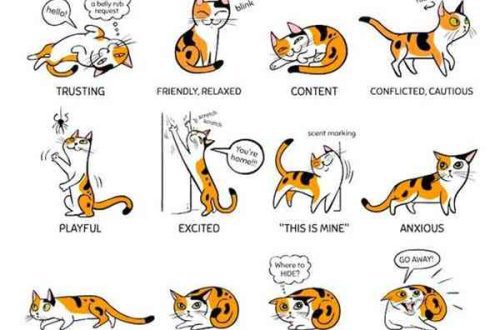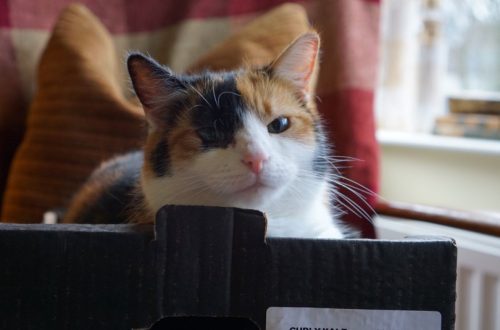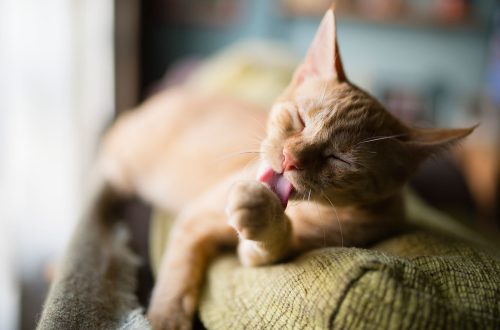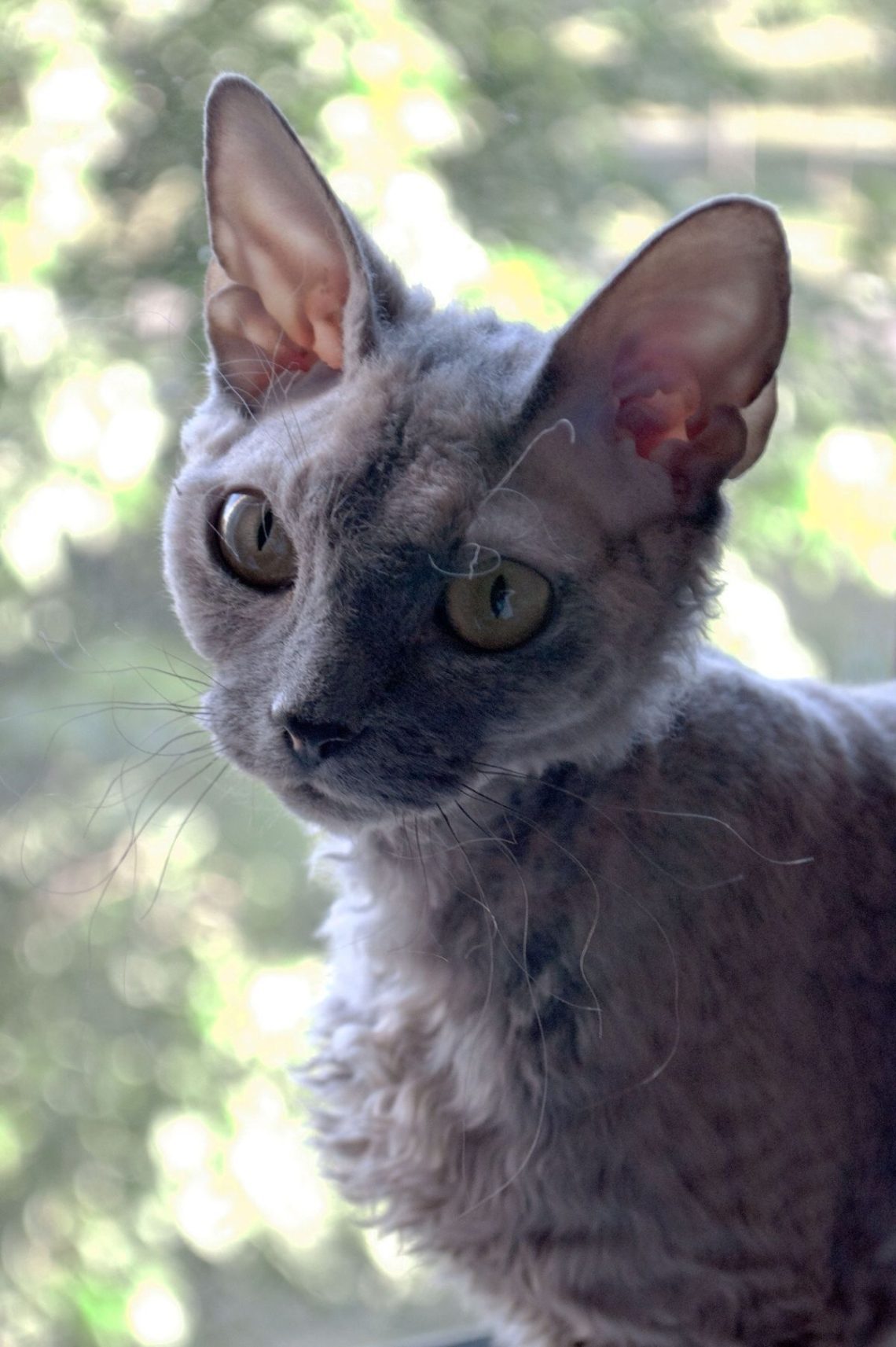
Devon Rex
The Devon Rex is an eared “Englishman” with a soft, wavy coat and huge eyes. It is distinguished by a curious, conflict-free character and almost dog-like devotion to the owner.
Contents
- Characteristics of Devon Rex
- Basic moments
- History of the Devon Rex breed
- Video: Devon Rex
- Appearance of the Devon Rex
- Devon Rex photo
- The nature of the Devon Rex
- Training and education
- Maintenance and care
- A few words about “hypoallergenicity”
- Health and disease of the Devon Rex
- How to choose a kitten
- Photos of Devon Rex kittens
- How much does a Devon Rex cost?
Characteristics of Devon Rex
| Country of origin | Great Britain |
| Wool type | shorthair |
| Height | 25–30 cm |
| Weight | 2–5 kg |
| Age | 15–17 years old |
Basic moments
- In Russia, the breed began to gain popularity not so long ago, so if you are not deprived of a bit of snobbery and dream of becoming the owner of a relatively rare pet, curly cats will suit you.
- By nature, Devon Rex are quite bouncy, so be prepared for the fact that from time to time they will seek adventure on cabinets, mezzanines or even your shoulders.
- Goodwill and accommodating are the key characteristics of the breed. Any Devon will be sympathetic to the fact that he is not the only pet of the owner.
- Devon Rex are literally “hot cats”, which is especially noticeable with tactile contact. The illusion of heated skin is created by the short hair of cats, which contributes to more intense heat transfer. For this reason, animals are sensitive to cold and often freeze even with a slight decrease in air temperature.
- No matter how friendly cats treat children, they will always prefer the company of adults to them. Consider this character trait and do not burden the animal with communication with babies.
- Devon murks are extremely inquisitive and playful and do not lose these qualities with age. Eared “pensioners” love chasing teasers and a ball no less than their young counterparts.
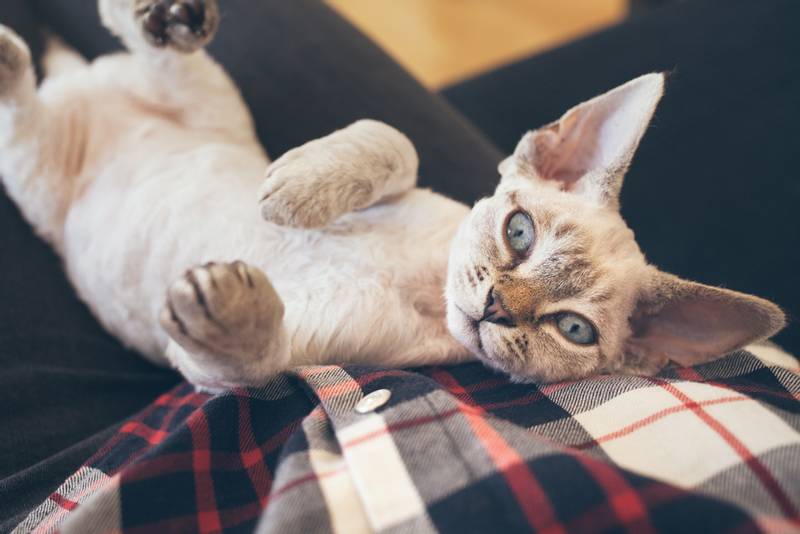
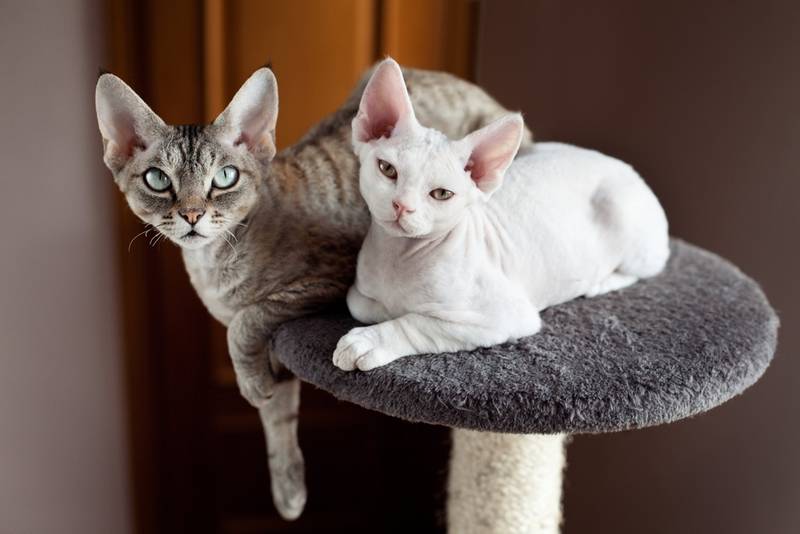
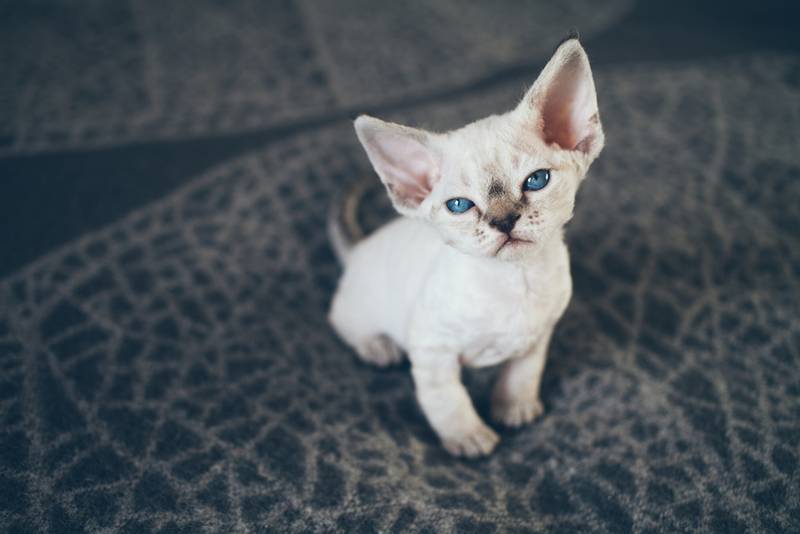
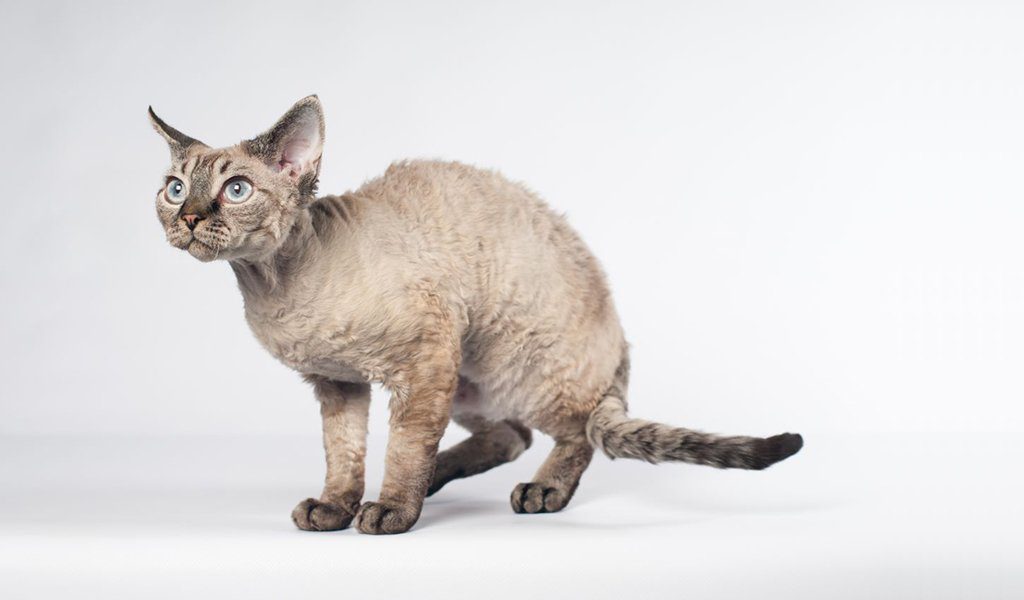
History of the Devon Rex breed
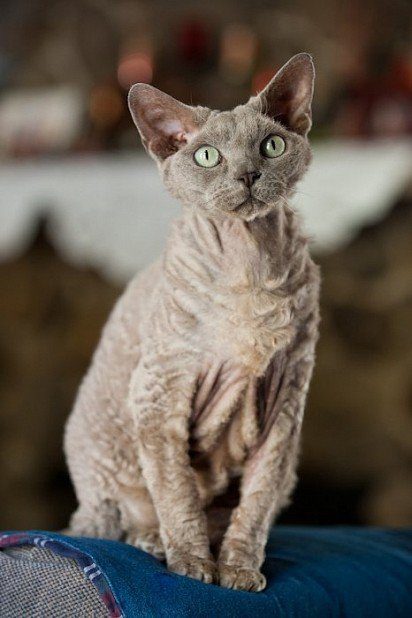
Devon Rex are the most common mutants, owing their textured appearance to a bizarre game of genes. The first kotofey, resembling an alien alien, was caught in abandoned mines in the vicinity of Devon (England) back in the 60s of the last century. The eared homeless child who fell into the hands of the British Beryl Cox turned out to be a girl, who after a while brought quite healthy offspring.
As for true fame, she, of course, did not shine with the mustachioed ward of Mrs. Cox. But one of the babies born by a cat still managed to enter his name in the history of world felinology. The kitten, named Kirly, was born slightly curly, which puzzled his own mistress very much. By that time, the cornish rex breed , whose representatives had wavy “fur coats”, was just beginning to come into fashion, so the woman came to the conclusion that her pet belongs to this cat family. To confirm her own guesses, Mrs. Cox showed Kirley to a well-known breeder at that time – Sterling Webb.
The breeder also did not consider the representative of the new cat clan in the Devon eared cat, so she mated him with her own Cornish Rex in the hope that they would give her several high-bred kittens in curls. However, the resulting offspring did not inherit the wavy coats of their parents. Moreover, after several unsuccessful matings, it became clear that Kirly is the carrier of a completely unique gene responsible for the curly coat, and he is not related to the Cornish Rex. It was this discovery that served as a prerequisite for further breeding experiments. Fairly mature by that time, Kirley began to be crossed first with his semi-wild mother, and later with sisters, in order to fix the mutation responsible for the structure of the coat. So, figuratively speaking, all modern Devon Rex have a common great-grandfather.
Not the last role in the popularization of the breed was played by the reputation of the county itself, in which curly murks were found. Shrouded in a ghostly mist of folk legends and tales, Devon has provided its mustachioed natives with a semi-mystical biography. As a result, the nickname “elves” stuck to them, which the animals received because of their extraordinary appearance. At the same time, until the end of the 70s, both Devon and Cornish Rex were classified as two branches of the same breed and had a common appearance standard. Only in 1979, under the pressure of breeders, PCA gave the long-awaited “independence” and the right to their own history to elf-like cats.
To date, the Devon Rex breed has a very limited gene pool, therefore, in order to “pump” it, felinological associations approve of crossing curly-eared cats with representatives of other cat dynasties. In particular, the CFA considers relationships between Devon Rex and British or American Shorthairs to be acceptable. TICA adds European Shorthairs , Siamese and Bombay Murkas to this list.
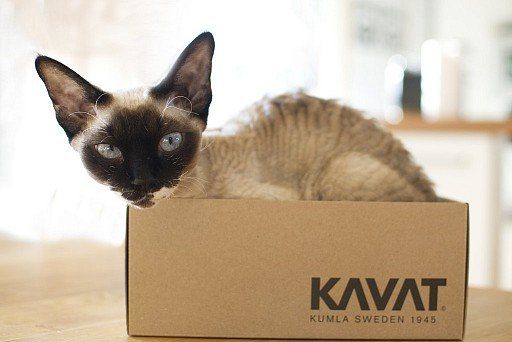
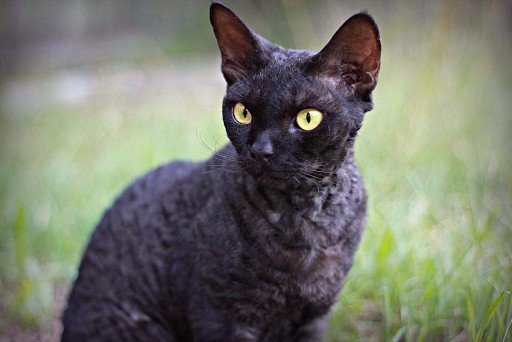
Video: Devon Rex
Appearance of the Devon Rex
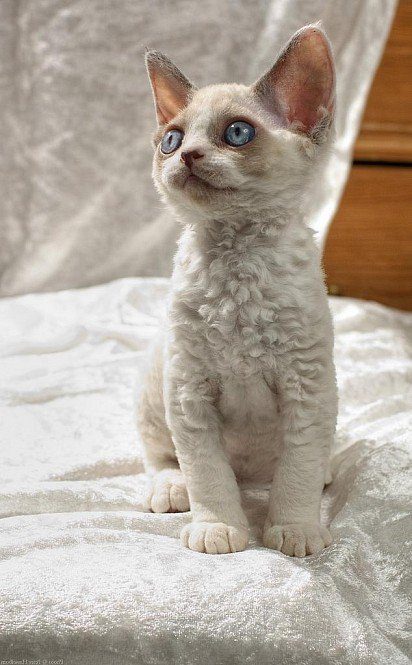
Either the notorious Martians, or the characters of English folklore – approximately such associations are caused by the appearance of these cats in people who first encountered the breed. The average Devon Rex, with its huge eyes, curled mustache and locator ears, looks extremely outrageous and could well qualify for a role in some blockbuster about an alien invasion. Of course, the Devon “elves” are far from the infernal image of the Canadian Sphynx, but this is the main feature of the breed for everyone who dreams of an elegant eared cat, but is not yet ready to settle a completely bald pet in their home.
Head
According to the WCF standard, a true Devon Rex should have a small, wedge-shaped head, noticeably stretched in width. The muzzle of the representatives of this cat family is short, with rounded cheeks and a massive chin. Stop is pronounced. In general, the contours of the skull of the Devonshire “newcomers” are quite embossed, if not sharp.
Ears
The main identifying feature of the breed is huge, extremely deep-set ears with a wide base and a smooth-rounded tip. The outer part of the cat’s ear cloth is covered with short, fine hair. The presence of brushes and brushes in the auricles is not necessary, but it is quite acceptable.
Eyes
Rather large, outlines repeating the shape of an oval. Set obliquely, at a sufficient distance from each other, which gives the appearance of the Devon Rex a slight halo of mystery. The color of the iris should match the shade of the coat, which is why most cats have green, yellow, or golden green eyes.
Neck
Not very long, but extremely graceful.
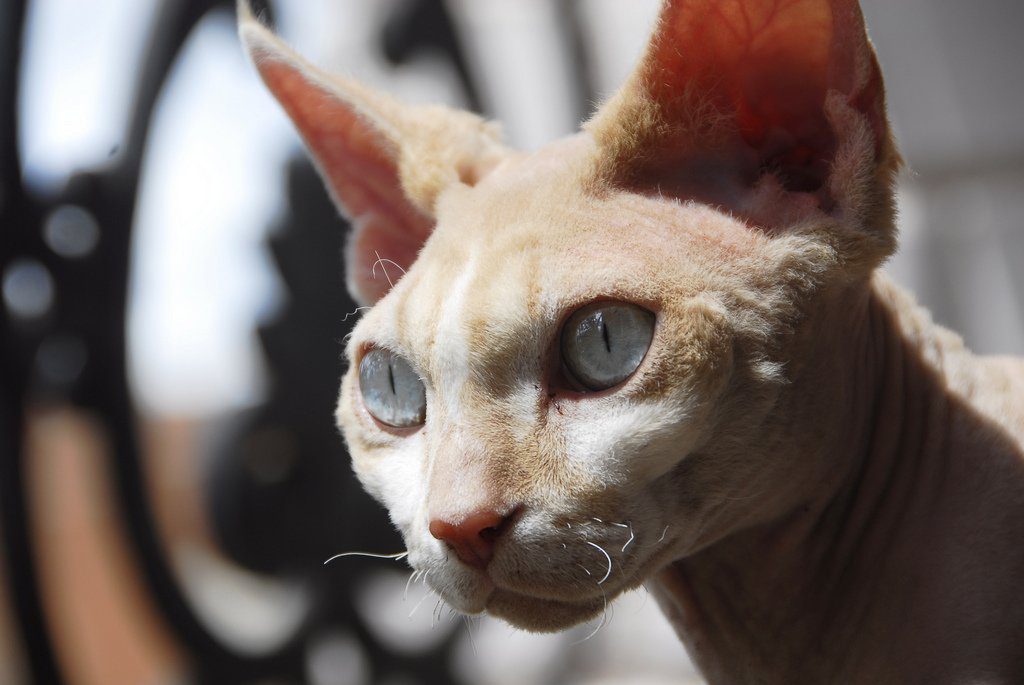
Frame
Paradox: having a graceful, flexible body with thin bones, Devon Rex are the real heavyweights, able to overcome the bar of 4-4.5 kg. The chest of the “elves” is wide and massive, which is especially pronounced in cats.
limbs
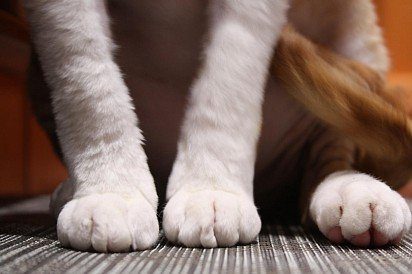
The legs of the Devonshire cats are slender and very long, and the paws are oval and miniature.
Tail
Thin, long, with a well-rounded tip. The hair on the tail is short but not sparse.
Wool
Devon Rex have almost no guard hair, which makes their coat look especially soft. In general, the “fur coats” of these eared ones have a very short “pile” with a light wave, which is especially clearly felt if you stroke the pet in the torso area. On the belly, neck and chest of the cat, the hair is sparse (not to be confused with possible baldness), but on the back, tail, sides and muzzle, the hair is noticeably thicker. Kittens have shorter hair than adults and often do not form the characteristic curl.
Color
For Devon Rex, all types of colors are acceptable, including acromelanic (heat-dependent) variants.
Defects and defects of the breed
At exhibitions and championships, individuals with coarse hair, a disproportionate, elongated head, a short tail and small ears do not receive an “excellent” rating. Devon Rex dogs with serious external defects are subject to complete disqualification, such as:
- pronounced bald spots;
- strabismus;
- polydactyly;
- excessively long, shaggy coat;
- tail crease.
Devon Rex photo
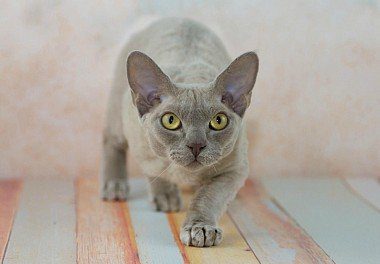
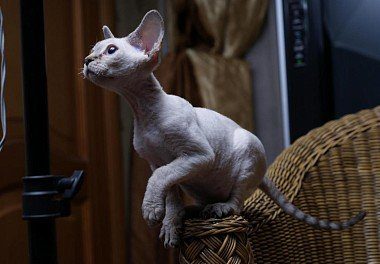
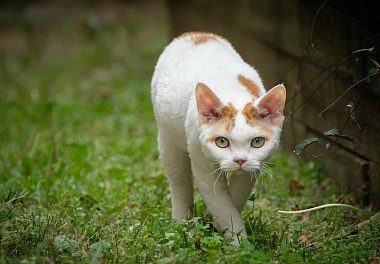
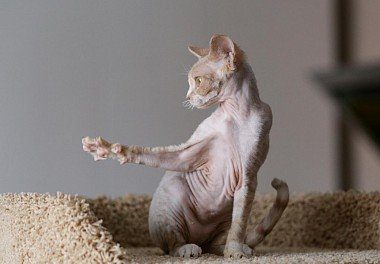
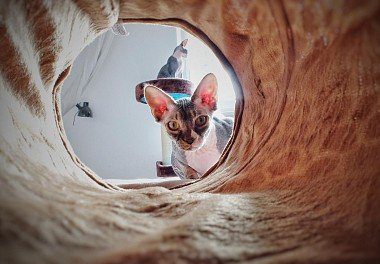
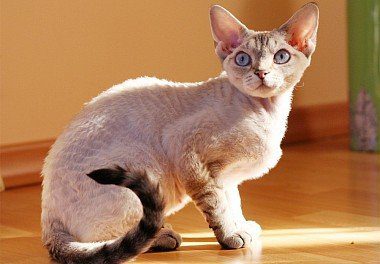
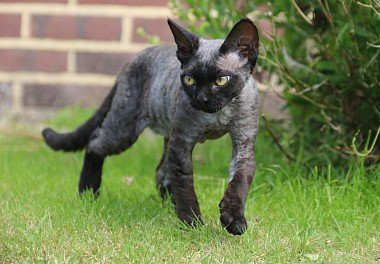

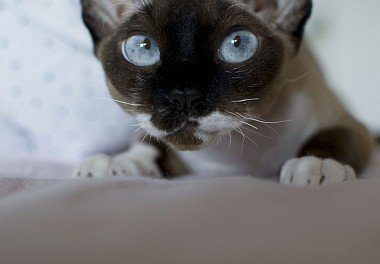
The nature of the Devon Rex
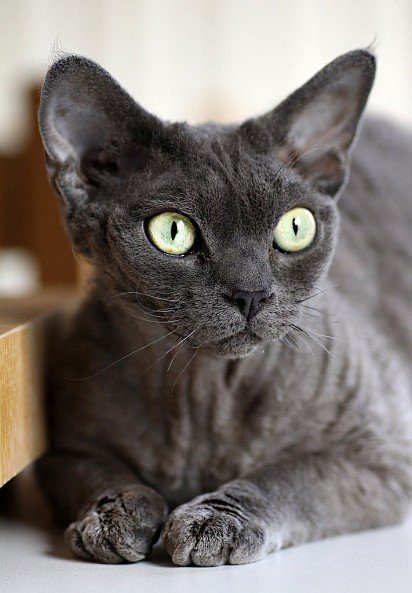
Devon Rex, although they portray arrogant majors during photo shoots, in their hearts remain complaisant and sociable cats. In their fantastic affection for man, they resemble dogs. To follow the owner with his tail, to control his every step, reminding of his own presence with persistent purring – all these are typical Devon habits. Among other things, eared “aliens” are very curious and will gladly try to stick their nose where they can and where they can’t. Not bad help cats in this case, their anatomical “gadgets”. Devon Rex fingers have amazing flexibility, comparable to the dexterity of human hands, so opening the kitchen cabinet door or throwing off the lid of the eared tracker box is a matter of a few seconds.
The notorious feline independence has rested on the Devons, so do not be surprised if the pet with enviable constancy not only occupies your knees, but also persistently tries to hang on your shoulders. In a similar way, animals try to express their sympathy, which they do not always know how to dose. But with the imagination and ingenuity of the Devons, everything is more than good. If the cat was given to understand that her cuteness is temporarily not needed, she will easily come up with another occupation for herself. For example, he will start playing with the first object that turns up under his paw or “dive” from the closet onto the bed until he gets bored. Examining the drawers of a chest of drawers, the contents of a laundry basket or the drum of a washing machine are also quite popular quests among Devons, so leaving a mustachioed “Martian” unattended for a long time is highly undesirable. And it’s not so much a mess, which a bored pet can arrange, how much is that representatives of this breed do not know how to cope with loneliness. Deprived of the opportunity to constantly contact the owner, they are nervous, withdraw into themselves, which greatly spoils their character.
Devon Rex cats are absolutely not jealous cats, they gladly accept any four-legged creature into their company, although some breeders are of the opinion that it is not worth populating two “aliens” in one apartment, as the animals will have to compete for the master’s attention. Another interesting trait in all respects of the Devonian Rex is their talkativeness. An eared prankster will rumble, purr in every way or meow invitingly in any situation, so accept this feature as a fact or suppress your desire to have a representative of this breed.
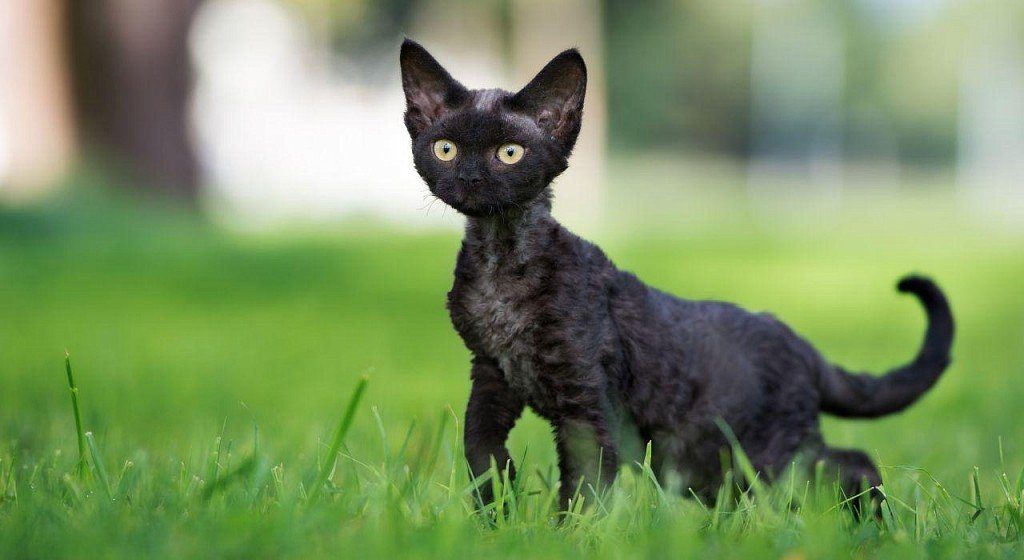
Training and education
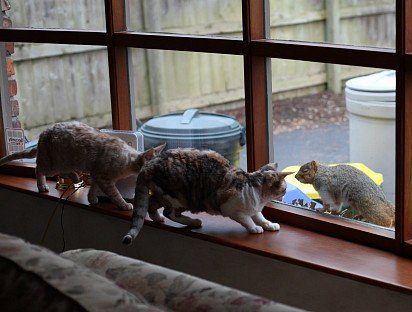
Devon Rex are great smart people, willingly joining the learning process and grasping new knowledge on the fly, especially if they are presented in a fun way. Use the animal’s love of play and teach it to fetch toys and other small items. Believe me, in helpfulness, “elves” are almost as good as dogs, and in some tricks they even leave them behind.
As for the stormy feline temperament, it must be curbed in a timely manner, so do not be lazy to instill in your pet the rules of etiquette and rules of conduct. Remember: a ban is a ban, exceptions to it are unacceptable. If the Devon Rex has discovered a penchant for dancing on the dinner table, persistently wean him from this pampering, but do not forget that the kitten needs to throw out energy somewhere. Do not break the psyche of the animal, forbidding him any jumps. On the contrary, let your pet frolic freely, but only in the place where his games will not cause serious damage.
Maintenance and care
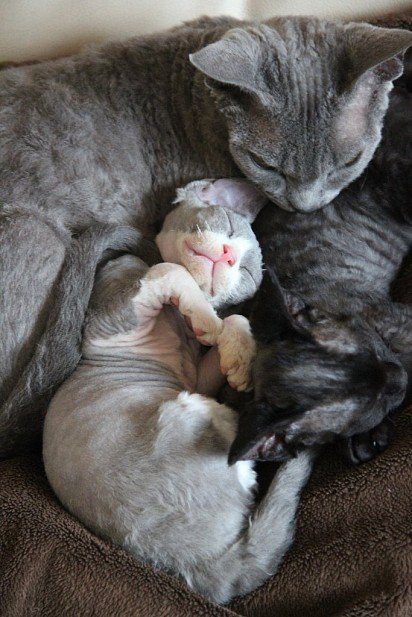
If an adult Devon Rex is just curious and playful, then his kittens have these qualities hypertrophied to the limit, so if you decide to get a curly-eared, put up with the need for total surveillance of him at least in the first year of life. The most dangerous places in the house for meticulous Devons are the toilet, large containers of water and aquariums in which a tiny creature can easily drown. With indoor plants, too, not everything is safe. The ubiquitous “aliens” will not miss the opportunity to chew on an azalea or lick a dieffenbachia, which in 9 cases out of 10 will provoke severe poisoning in them. Accordingly, make a choice in advance: either flowers or cats.
Do not forget to hide from the Devon Rex small piercing objects like needles and pins, which he perceives as toys. Medicines, insecticides, household chemicals should also not be in the public domain, so that the cat does not have a desire to taste them. Be careful with open windows. Of course, Devon Rex do not jump into them of their own free will, but in pursuit of some insect they can lose their vigilance and get injured.
In order to settle down in a new place, the “elf” will need a standard set: a bowl, a scratching post, a tray. If saving on pet comfort is not in your plans, splurge on buying a full-fledged play complex or a maze with pipes. Having acquired such a “residence” as a property, the Devon Rex will less often besiege furniture modules, which will somewhat reduce the destructiveness of his stay in your apartment.
Hygiene
The good news is that the Devon Rex does not require specific hair care, other than standard brushing. The bad news: you will have to scrupulously monitor the cleanliness and health of your pet’s ears, as well as systematically clean his claws.
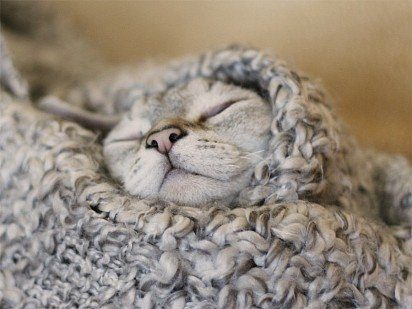
In principle, it is not necessary to bathe the Devons: this breed is already quite clean. But if your eared has managed to get dirty, prepare a bath for him, the water temperature in which will not be higher than 38 ° C. After the animal is washed, dry it with a towel. It’s better to forget about the hair dryer with the Devon Rex. The jet of hot air supplied by the device dries out the cat’s skin and straightens its wavy coat.
Devon Rex ears, due to their standing position, easily attract dirt and quickly fill with sulfur secretions. And since the skin inside the ear funnel of the “aliens” is extremely sensitive, cleaning with vegetable oils and hydrogen peroxide is contraindicated for them. Replace folk remedies with pharmacy drops, cleaning wipes and lotions.
Once a month, curly murks are given a “pedicure” session: the claw is shortened with a nail cutter, trying not to touch the area with the blood vessel. In addition, the claws of the Devons are also supposed to be cleaned of fatty deposits. To do this, it is enough to collect soapy water in a basin and prepare a brush from natural bristles. Then we gently press on the fingers of the cat so that he releases the claw out, and we process the base of the plate with a soapy brush. After all the claws are cleaned, wash the cat’s paw in warm water and wipe it dry. The procedure is carried out every 7-10 days, so if at first the Devon Rex tries to rebel, then after a couple of months of regular cleanings they completely calm down and behave decently.
To remove plaque, you can use a bandage wrapped around your finger soaked in veterinary paste. If you don’t want to trust your own fingers to the cat’s jaws, you can try to make do with dry food, whose hard kibbles also cope well with the problem of plaque.
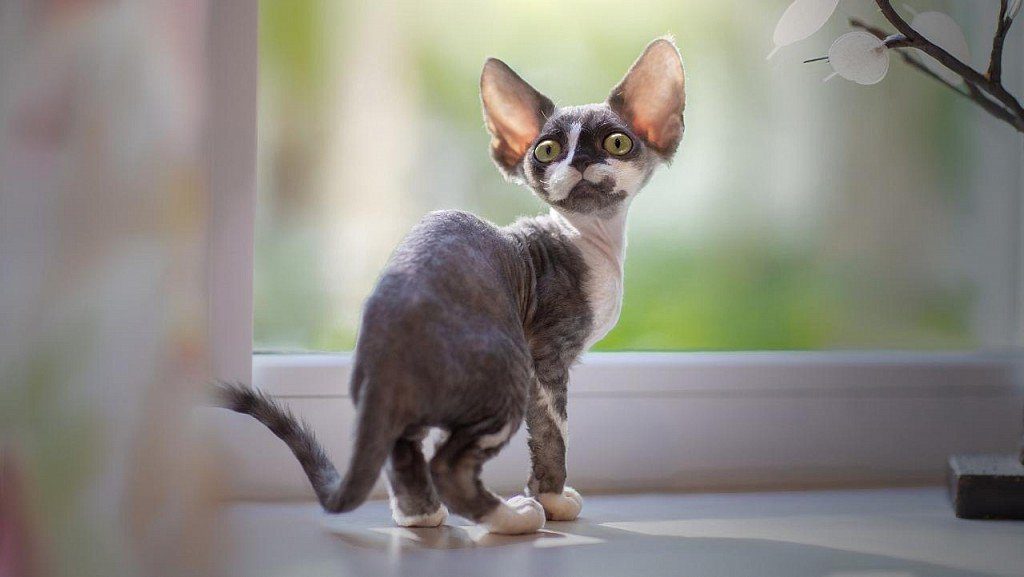
paddock
Devon Rex are exclusively pets, so they are either not taken out into the street at all, or from time to time they are walked on a harness. It is very risky to let a cat “free swim” because they do not always return from it. Teach your baby to the harness in advance, not forgetting the mandatory vaccination, which will help the pet resist infections. It is better to start walking at an early age. So it will be easier for the animal to get used to the new reality surrounding it.
Feeding
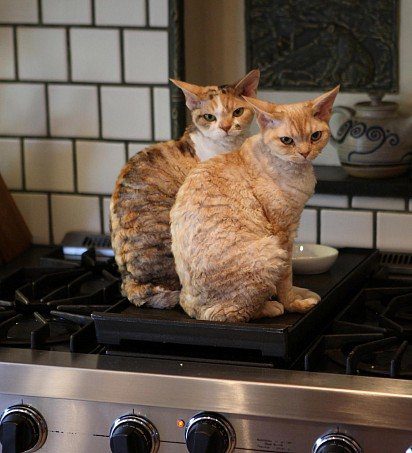
Devon Rex willingly eat both “drying” and canned food, but these should be varieties of at least premium, and preferably holistic class. Cheap pacifier foods are not suitable for the breed at all, so forget about Whiskas, Kiteket and other economy class varieties. With natural food, things are even more complicated. Many foods for Devon Rex are harmful, and those that are useful are not always able to give the body a sufficient amount of vital amino acids (taurine and arginine). Accordingly, if your pet eats exclusively “natural”, you will have to additionally buy a vitamin and mineral complex for him (good options are offered by “Beaphar” and “8 in 1”).
The daily menu of the Devon Rex should include lean meats, sea fish (no more than 1 time per week), dairy products, fats in the form of butter and vegetable oils, cereals, vegetables and greens.
Not prohibited, but undesirable:
- liver – poorly digested even when boiled, can cause allergies;
- milk – most Devons are lactose intolerant;
- fruits – provoke bloating and diarrhea;
- raw river fish – often infected with parasites that can get into the body of a cat.
Complete ban:
- any sweet, salty and spicy dishes;
- chocolate;
- smoked meat and fish;
- bakery products;
- beans and potatoes.
Meat for cats is given coarsely chopped, scalded with boiling water or boiled. Minced meat in this case is not suitable, since the nutrients from it are not fully absorbed. On average, an adult Devon Rex should eat between 50 and 100 grams of meat per day. Occasionally, you can pamper your pet with a slice of lightly salted cheese. With chicken eggs, it is also better not to overdo it, since their raw protein contains an enzyme that is harmful to Devons and causes hair loss. But once a week, the “elf” can be allowed a raw or hard-boiled egg yolk. From vegetables, preference should be given to cabbage (cauliflower or kohlrabi), carrots and beets. From cereals, buckwheat, rice and oatmeal are preferable.
A few words about “hypoallergenicity”
The hypoallergenicity of the Devon Rex is a myth that has been cultivated by enterprising breeders for several years now. Yes, Devons do not shed as intensively as other cats, but their coat does not differ in absolute “sterility”. Like most pets, Devon Rex periodically lick their own “fur coats”, so they get the main nightmare of all allergy sufferers – the Fel d1 protein. It is this protein contained in cat saliva that is responsible for tearing, sneezing and other allergic reactions of the body. Accordingly, bringing a Devon kitten to an apartment where one of the tenants has an oversensitive immune system, you risk in the same way as if you settled a mongrel fluffy.
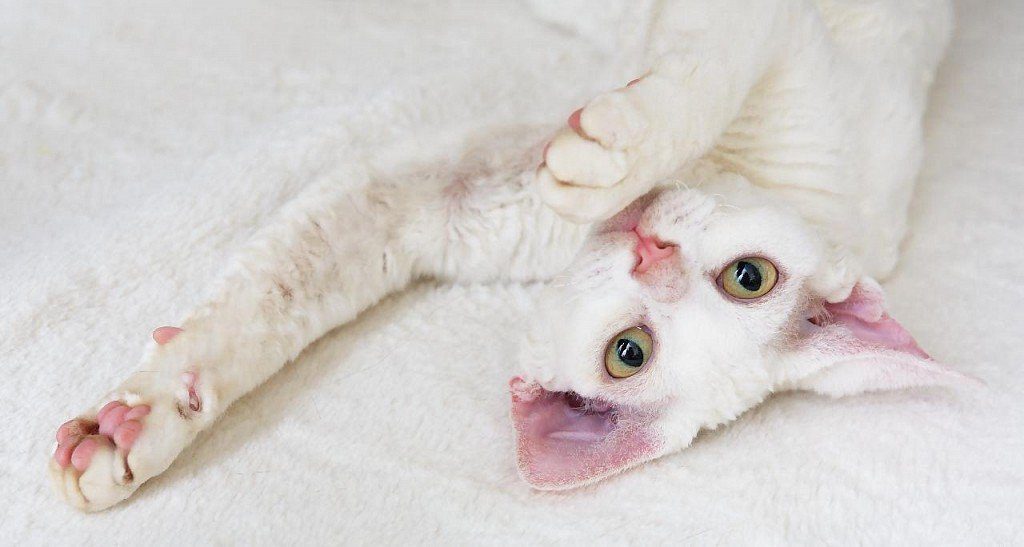
Health and disease of the Devon Rex
Devon Rex can be called a relatively healthy feline nation, due to their youth, they did not have time to acquire a long list of genetic ailments. But still, some health problems occur among these strong men. For example, adults often suffer from hypertrophic cardiomyopathy. The disease is difficult to diagnose, in addition, effective methods of its treatment do not yet exist. Muscular dystrophy in Devon Rex appears at a young age, between 4 and 17 weeks of age. As in the case of the first ailment, the disease is practically untreatable. Quite common among representatives of this breed is a dislocation of the patella, in advanced stages leading to osteoarthritis and further lameness.
How to choose a kitten
Start by looking for a reliable cattery registered in one of the felinological systems and having managed to build up a breeding base and regular customers. The optimal age of the institution is from 8 years and more. Not the last role is played by the cost of the Devon Rex. Serious sums are spent on the maintenance of thoroughbred kittens, unless the breeder is cunning and does not save on their health. So a too low price tag is a reason to think about the honesty and integrity of the seller.
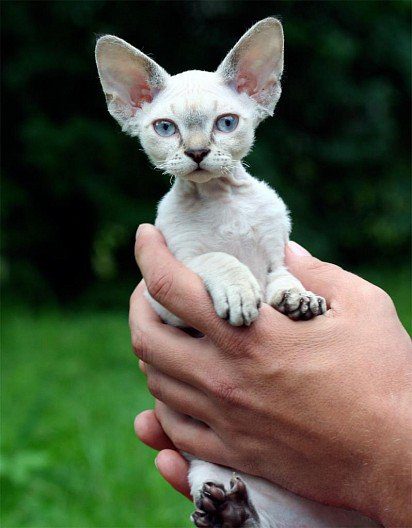
As for the choice of the Devon Rex kitten itself, then put up with the idea that no self-respecting cattery will sell you a “guaranteed champion”. And all because it is beyond the power of even the most seasoned cat lover to discover exhibition potential in a tiny eared cat. The maximum that you can count on in the event of a purchase is a baby without serious external defects, which may evolve into a show-class animal, and may remain a modest pet.
Since the commercial breeding of Devon Rex has begun to gain serious momentum, fraud in the sale takes place. So, when communicating with a nursery employee in absentia, always demand as many photos and videos of the baby you like as possible in order to insure yourself against buying a pig in a poke. If you are visiting the seller in person, evaluate the living conditions of the Devonian bats, take a look at their parents’ papers, as well as at themselves, and then proceed to assess the appearance of the kittens.
The correct Devon Rex is a healthy, moderately well-fed and inquisitive kitten with curly hair without a single bald spot. The inner surface of the baby’s ear cloth must be clean and without wounds, in addition, the animal itself must be at least 3 months old. The Devon’s veterinary passport will also tell a lot about his health and how attentive the breeder was to the kitten. A three-month-old Devon Rex should receive two routine vaccinations, which are marked on his card.
Photos of Devon Rex kittens
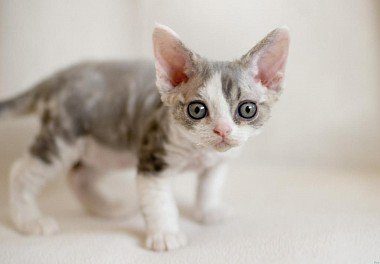
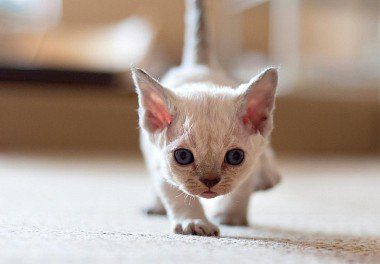
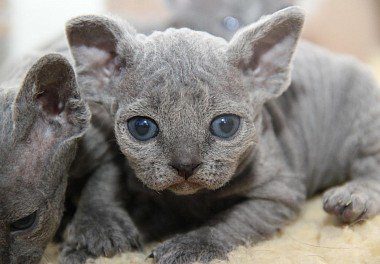
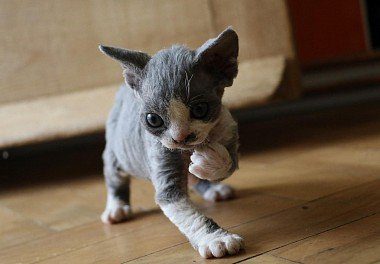

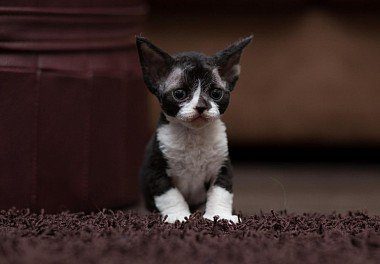
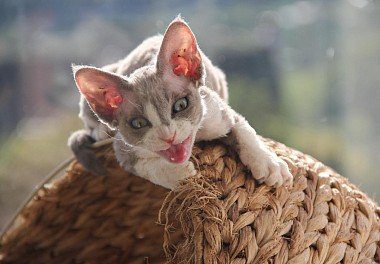
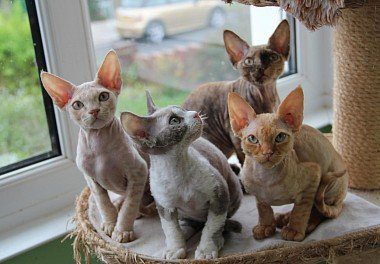
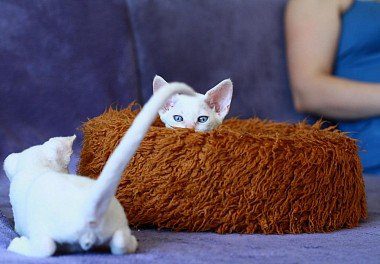
How much does a Devon Rex cost?
In Russian catteries, a so-called good type (with a promising appearance) breed kitten will cost between 500 and 600$. Devon Rex with minor defects in appearance that do not prevent them from being excellent pets go for 350 – 450$. A price tag of 200 – 250$ is usually set for kittens who are not going smoothly with their pedigree or health.



